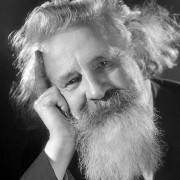|
wheez the roux posted:gently caress your iguana you spoiled turd brat He did just touch it with his bare hands so he probably got salmonella like a mother fucker
|
|
|
|

|
| # ? Jun 10, 2024 11:10 |
|
wheez the roux posted:everything this man speaks the truth.
|
|
|
|
Maybe if we start 1st and 15 we'll call better plays
|
|
|
|
wheez the roux posted:i heard it actually rules a lot Maybe it gets by on word of mouth, but none of their marketing makes it look interesting at all.
|
|
|
|
I am watching this game while correcting the grammar on 14 10-page research papers from non-native english students. I cannot decide which aspect is more painful
|
|
|
|
Hey look, a first down
|
|
|
|
Fat Lowtax posted:How can you say that before the horrifying collapse I just assume its going to happen. Which just confirms it.
|
|
|
|
Ya like that
|
|
|
|
So the plot for John Wick is apparently this: "A former hitman comes out of retirement to go after the group of thugs that killed his dog, who happen to be related to his former employer."
|
|
|
|
Shimrra Jamaane posted:Hey look, a first down 
|
|
|
|
Josh McDaniels calls his annual run
|
|
|
|
ALL-PRO SEXMAN posted:So the plot for John Wick is apparently this: "A former hitman comes out of retirement to go after the group of thugs that killed his dog, who happen to be related to his former employer." This sounds like it should star Jason Statham
|
|
|
|
blue squares posted:I just finished working on my essay. Should I tune in? Everyone cares about both what you're doing and what you do, so obviously.
|
|
|
|
kazil posted:Post your essay, it's probably more interesting than the game Title? You’re walking across campus on your first college tour, your parents by your side, struggling to convey their pride in your accomplishments and conceal the empty-nest syndrome already churning in their guts—yes, Dad too, despite the stoicism. As the tour guide leads you and the other eager high school seniors around, you’ll have the chance to hear about the finer points of engineering, biology, or computer science, the definitions of which are self-evident. But if your tour guide gets lost, or begins feeling a little subversive, she’ll guide you past an underfunded building whose fading signpost might cause you to ask, “what is rhetoric?” The choking noise behind you is your father, seeing your petroleum-engineering future fade away. At this point, if you’ve got the right guide, you’ll hear one of several definitions, each of them thousands of years old, and still being fought over today. Despite the pessimism of some scholars, like Douglas Ehninger, who wrote that “the search for a defining quality [of rhetoric] can only end in error or frustration,” we’ve been trying to classify rhetoric since Plato, circa 350 B.C.E. Chances are, though, that your tour guide shrivels under the piercing stares of the financially-minded parents and hurries you along to the accounting school. To answer your question, we have to begin long before Plato. We turn to Homer, the ancient Greek poet whose tales of the Trojan War and the Odyssey of Odysseus still enthrall readers today. In Homer’s time, “the spoken word and persuasion occupy an important place” (Higgins 1). The famous Achilles is taught to become “both a speaker of words and a doer of deeds” (Higgins 4). Through the epic poems, Homer “practiced rhetoric…[and] established the rules” (Higgins 5). Homeric speech was “endowed with intrinsic efficaciousness” (Higgins 6). That is, speech affected change, and sometimes “shows itself to be more useful than action and achieves what force could never have” (Higgins 7). Before Greeks conceived of Philosophy and Rhetoric of separate courses of study, they existed together in Homeric heroes. Another Greek, Pericles, said that it is the “duty of all men to be active in… civic affairs, designating those who do not participate as useless.” It is this sense of speech, intelligence, and action united that we will deem “original” rhetoric—and which we will return to later. Today, “rhetoric” is often used a pejorative, especially in politics. It is this sense of rhetoric as something deceitful that comes from Plato—ironically, the one who first coined the word. Plato despised rhetoric. He wrote a text, a play of sorts, depicting a fictional encounter between the very real Socrates, Plato’s philosopher-teacher and Gorgias, a famous rhetorician. This would have been on prime-time TV in ancient Greece. The purpose of the encounter is to get to the heart of what rhetoric is—and what it can do. Gorgias was known for his sold-out performances during which he’d invite anyone present to present him with a topic upon which he’d expound until he’d expunged all doubts that his position was correct. The most famous of these impromptu orations was the “Encomium of Helen.” The speech was a defense of Helen of Troy, who had been vilified for centuries after Orlando Bloom seduced her and did battle with Brad Pitt. Gorgias attributed Helen’s move to the magical power of rhetoric. Used for nefarity, rhetoric can persuade to the listener’s detriment. Plato spit his coffee all over his newsscroll the next morning. The idea of using discourse to deceive outaged him. So, he did the honorable thing and wrote a caricature of his enemy in which Gorgias appears the fool. In the dialogue, called The Gorgias, Socrates and the eponymous rhetorician square off over the nature of rhetoric—primarily, whether it belonged in the same category as things like doctoring, law, ethics, and justice. Through a series of exchanges characteristic of the question-and-answer known today as “The Socratic Method,” Socrates invites Gorgias to supply a definition of rhetoric. They proceed through metaphors, and systematically Socrates takes things that Gorgias claims are the domain of rhetoric—education, virtue, truth—and throws them under headings. In the end, all Gorgias is left with is persuasion without knowledge, which Socrates likens to “cooking tasty food [in the] guise of doctoring, and [passing] itself off as knowing the best foods for the body,” when in fact it does not (Plato 49). This characterization of rhetoric as deceptive and ignorant has remains even today. Of course, it’s easy to win an argument when you control both the voices. In Gorgias’s own words, from “Helen,” he admits the possibility of rhetoric (though the term he uses is logos: speech and reason) to deceive, but holds that rhetoric can “show truth” (Gorgias 2). It is this sense of truth, of the rhetor taking responsibility for his power and using it honorably, that is descendant from original rhetoric But first, to bridge the two, we must proceed through another model of rhetoric, termed “useful rhetoric.” Aristotle, a student of Plato (and later a tutor to the soon-to-be Alexander the Great), believed rhetoric was an excellent tool if used properly. “Rhetoric,” he wrote, “is a counterpart to dialectic” (Aristotle 133). Dialectic is the systematic, deliberative logic used by philosophers to explore truth. According to Aristotle, it is superior to rhetoric, which cannot discover truth on its own. However, dialectic is the domain of philosophers and the uneducated man is not prepared for such rigorous discourse. Therefore, rhetoric can be used to translate lofty philosophical thought into appropriate language for wide dissemination. With that attitude, we can imagine Aristotle’s extended family dreaded the annual Thanksgiving dinner. Aristotle also praised rhetoric for its ability to be “persuasive about opposite things,” so that “if someone else uses arguments unjustly, we ourselves might have the means to refute them” (Aristotle 136). This is the key to understanding Aristotle’s conception of rhetoric as a force for good. Deceptive arguments, he knows, will always exist. The wise man who is skilled in rhetoric will use his skill to ensure that the just argument prevails. Imagine if everyone had such discernment. Washington D.C. might be a more productive place. “It is clear,” Aristotle concludes, “that rhetoric… is not to persuade, but to see the means of persuasion that are available on each matter” (Aristotle 137). He called this invention—discovering all the available arguments on a given subject. Plato’s and Aristotle’s opposing views on rhetoric remained dominant for hundreds of years, until Rome had ascended to the highest position of power in the western world and produced its own distinguished orators. Marcus Tullius Cicero was born to an upper-middle-class family and rose through politics to become the consul of rome—essentially the President. Along the way, he cemented a reputation as a dazzling speaker. Cicero urged a return to what rhetoric originally was: both philosophy and speech, “an ethics of communication and communal involvement guided [more] by virtue than an art of persuasion” (Cartledge). His rhetoric was one that emphasized practical wisdom and civic involvement. The foundation of this is an acquisition of knowledge of a great many things, especially human character and behavior. This is less an Aristotelian model of philosophy and rhetoric working together to find and share truth, and more of thinking of the two as one. The Ciceronian speaker is both learned and eloquent, and she uses her talents for the good of the community. A “rupture, so to speak, between the tongue and the brain… is quite absurd, harmful, and reprehensible, and which has resulted in our having different teachers for thinking and for speaking” (Cicero 241). Thus the rhetor is ignorant is eloquent but misleads, and the philosopher is wise but ineffectual. Cicero’s pronouncement is that “the real power of [knowledge-based] eloquence is so great that its scope includes the origin, essence, and transformation of everything: virtue, moral duties, and the laws of nature that govern human conduct, characters, and life… and addresses with distinction and copiousness all questions belonging to any area whatsoever” (Cicero 248). Cicero’s vision of original rhetoric may not have won out over Plato and Aristotle, but it it had a champion in at least one U.S. President: John Quincy Adams. Adams said, “the better the man, the more benefit he is capable of conferring to his fellow citizens. Learning, wisdom, and virtue are estimated through a man’s words and deeds, and the whole duty of a man is to make himself capable of such things.” If these words stir a drum within your chest, if you aspire to more than to be the highest-paid alumni at your ten-year reunion, walk through the halls of the rhetoric building. Ignore the missing ceiling tiles (we’ve long since stopped noticing them). Think of the great men and women who have led lives of distinction centered around an ancient vision of original rhetoric, and prepare yourself for a true education.
|
|
|
|
 sighting sighting
|
|
|
|
Holy poo poo Brady.
|
|
|
|
Big Beef City posted:Everyone cares about both what you're doing and what you do, so obviously. Man you are grumpy all the time dog chill out its GDT time
|
|
|
|
So did Lafell just not give a gently caress in Carolina?
|
|
|
|
That play action hast to work. They have to respect the run!
|
|
|
|
wheez the roux posted:i heard it actually rules a lot Hells yeah.
|
|
|
|
Whoa LaFell had a good grab
|
|
|
|
There is the collapse.
|
|
|
|
Brandon LaFell: the one Pats FA receiver that actually worked out
|
|
|
|
I mean, I don't question the idea of an ex-hitman killing a bunch of thugs who killed his dog, but I question it being the plot of a movie.
|
|
|
|
blue squares posted:Title? ok this is worse than the game after all
|
|
|
|
Amendola, awful as always.
|
|
|
|
Paragraph spacing on the essay next time please.
|
|
|
|
surf rock posted:ok this is worse than the game after all
|
|
|
|
ALL-PRO SEXMAN posted:I mean, I don't question the idea of an ex-hitman killing a bunch of thugs who killed his dog, but I question it being the plot of a movie. It's a Keanu Reeves movie. When you look at it as one, it makes plenty of sense.
|
|
|
|
midwat posted:Brandon LaFell: the one Pats FA receiver that actually worked out Joey Galloway worked out in a way. It brought us the best Brady bitching line ever.
|
|
|
|
Why is this worth reading?
|
|
|
|
Mel Mudkiper posted:Man you are grumpy all the time dog chill out its GDT time What the heck....
|
|
|
|
jetsss
|
|
|
|
Cruel and Unusual posted:Why is this worth reading? If you're not my professor, it probably isn't.
|
|
|
|
have you ever heard of formatting bro.
|
|
|
|
gently caress the pats qtiyd
|
|
|
|
Did I just see a Jets defender do a somersault?
|
|
|
|
That was an interesting "slide."
|
|
|
|
Brady so close to making the line of scrimmage
|
|
|
|

|
| # ? Jun 10, 2024 11:10 |
|
FizFashizzle posted:gently caress the pats qtiyd I'm down.
|
|
|


































